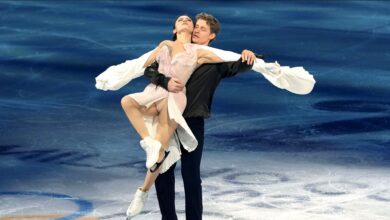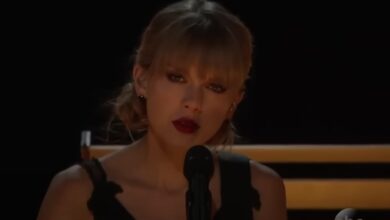Dean Martin’s ‘Ain’t That a Kick in the Head?’ Becomes a Timeless Classic
In 1960, Dean Martin introduced the world to Ain’t That a Kick in the Head?, a song that, despite its initial modest chart performance, would become one of his most enduring and iconic tracks. Written by the legendary duo Jimmy Van Heusen and Sammy Cahn, the song was first recorded on May 10, 1960, with an upbeat big band arrangement conducted by Nelson Riddle. Martin’s charismatic delivery and the song’s catchy melody encapsulated the essence of the swinging ’60s.
Dean Martin, born Dino Paul Crocetti in 1917, hailed from Steubenville, Ohio. Before achieving fame, he worked various jobs, including as a boxer and a croupier. His big break came when he partnered with comedian Jerry Lewis, forming the renowned duo Martin and Lewis. Martin’s smooth baritone voice, effortless charm, and relaxed demeanor set him apart, making him a beloved figure in both music and film.
The inspiration for Ain’t That a Kick in the Head? came when Van Heusen and Cahn were tasked with writing a song for the film Ocean’s 11, starring Martin alongside Frank Sinatra and other Rat Pack members. The song was crafted to capture the film’s suave and playful tone, reflecting the lighthearted camaraderie of its cast.
The recording session took place at Capitol Recording Studio in Hollywood, with Lee Gillette producing. Nelson Riddle’s arrangement featured a swinging big band sound, complementing Martin’s laid-back vocal style. The synergy between Martin and Riddle had been well-established in previous collaborations, and this track was no exception, showcasing a seamless blend of vocals and instrumentation.
Upon its release, Ain’t That a Kick in the Head? surprisingly did not chart, despite positive reviews. Billboard magazine had listed it under “Very Strong Sales Potential,” yet it failed to gain significant radio play or sales traction at the time.
Despite its initial commercial underperformance, the song’s inclusion in Ocean’s 11 helped cement its association with the Rat Pack’s cool and carefree image. Over time, it became emblematic of the era’s sophisticated swing culture, influencing both the music industry and popular perceptions of mid-20th-century entertainment.
For Martin, while the song didn’t immediately impact his career trajectory, it later became one of his signature tunes. Its enduring popularity contributed to a resurgence of interest in his music, introducing his work to new generations and solidifying his legacy as a central figure in American pop culture.
The song’s influence extended beyond Martin’s own repertoire, inspiring numerous artists across genres. Over the decades, it has been covered by performers such as Robbie Williams and Westlife, each bringing their unique style to the classic tune.
Notable renditions include Sammy Davis Jr.’s 1960 cover, which offered a jazzier interpretation, and Westlife’s 2004 version, which introduced the song to a younger pop audience. These covers helped keep the song relevant across different musical landscapes and generations.
Around the time of the song’s release, Martin was enjoying a successful solo career, having recently parted ways with Jerry Lewis. He was also a key member of the Rat Pack, contributing to their legendary performances in Las Vegas and their collective cultural impact during the early 1960s.
In the long term, Ain’t That a Kick in the Head? became a staple in Martin’s discography. It has been featured in numerous films, commercials, and television shows, ensuring its continued presence in popular culture and its recognition as an iconic standard.
The track’s enduring appeal lies in its timeless blend of catchy melody, witty lyrics, and Martin’s charismatic performance. It exemplifies the swinging style of its era while remaining accessible to contemporary audiences, showcasing the lasting impact of Martin’s musical legacy.
In retrospect, while Ain’t That a Kick in the Head? may not have achieved immediate chart success, its cultural and musical significance have far surpassed its initial reception. It stands as a testament to Dean Martin’s enduring charm and the timeless allure of the Rat Pack era.



